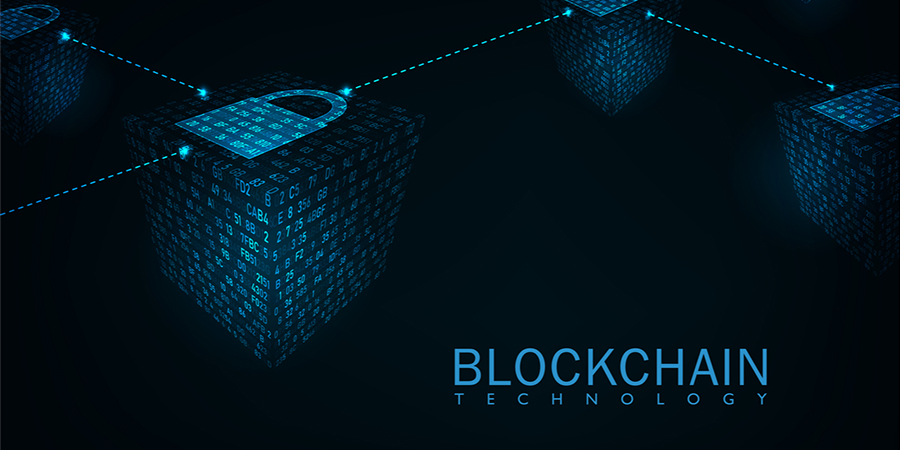The concept of blockchain technology made its way into the general public’s consciousness around 2008, along with the introduction of crypto or digital currency bitcoin. Since then, the technology has been gaining acceptance and businesses are still exploring new ways to apply the technology to support their operations. Furthermore, the sudden importance of digital data in everything that we do today has necessitated the need for greater data security, access, transparency, and integrity that blockchain technology can provide.
The credit for making the technology what it is today has been given to one name - Satoshi Nakamoto- who has been instrumental in the development of the technology and introducing a Hashcash-like method – a proof-of-work system used to limit email spam and denial-of-service attacks – to timestamp blocks of data without a signature by a trusted party and providing a layer of protection to the management of adding blocks to the chain of transactions for bitcoin. This system is the core component of cryptocurrencies, where it serves as the ultimate public ledger for all transactions on the network.
Over the years, blockchain has found many uses cases across different sectors other than for use of bitcoin transactions. Blockchains have already disrupted some of the biggest industries in the world such as finance, banking, international remittance, and supply chain management. It offers new ways of conducting business by enabling benefits such as trust, security, transparency, and autonomy. One of the most important things for telecom companies is to innovate in a fiercely competitive market while at the same time remaining cost-efficient and blockchain represents an ideal support technology to complement that.
Internal telecom operations
Blockchain helps in providing telecommunication companies the much-needed automation in their internal processes such as billing, roaming as well as supply chain management. By using smart contracts to handle the billing related to roaming, telcos can save money and time for auditing and accounting. It will also insulate them against fraudulent traffic resulting from the involvement of too many intermediaries. Currently, transactions within the telecom company’s ledgers have to go through audit centers to be authenticated. Smart contracts can automate the SLAs which will provide a real-time view to all the stakeholders and increase transparency. It can also help in dispute resolution through tamper-proof verifiable transactions and real-time usage updates to the end consumer.
Developing new digital services
Telecom companies can provide a range of blockchain-related services to their customers that can lead to new revenue streams. For instance, Etisalat Digital introduced UAE Trade Connect (UTC), a nationwide blockchain platform along with and seven leading UAE banks. The one-of-a-kind platform allows data to be shared securely by leveraging AI, machine learning, optical character recognition (OCR), and robotic process automation (RPA) to scan invoices to detect duplication and dubious transactions within the bank offerings. Telcos can also leverage blockchain for micropayment services for music, mobile games, and other services. They can also use blockchain for customer-to-customer money transfer services. Many telecom operators are offering digital wallets to offer such services using the technology to make the transactions secure and cheaper.
Digital identity management
Identity verification is a cost-heavy operation that organizations have to manage and end up spending a significant amount of their capital every year. Telcos can become early adopters of blockchain and leverage new business emerging in the markets. Blockchain solutions can allow for decentralized storage of identity documents with control remaining completely with the individual on who to share the documents with. With telecom companies adapting products and services for the world of digital and 5G, blockchain solutions will be key to offering identity as service (IDaaS) and act as a channel between the end consumers and digital services at large. Telecom companies enjoy a high level of customer trust so they stand in an excellent position to offer this new service.
Network deployment and operations
Spanish telecommunications infrastructure management company Atrebo uses Telefónica Tech’s blockchain platform to digitize over 200,000 towers and other telecommunications infrastructure assets.
Atrebo’s ‘TREE’ platform provides robust infrastructure management capabilities in network planning, site acquisition, installation, operation, and optimization. Atrebo offers its platform across energy, smart city, and other vertical markets; however, telecommunications is its largest market, and Telefónica is its biggest customer by far, having deployed the TREE platform in 13 of its 17 markets. Traditionally, network deployment and operation are dictated by manual processes and a complex ecosystem holding the elements of deployment and operation. Hence, it makes it a perfect fit for blockchain applications that can guarantee levels of trust and transparency across the ecosystem. Additionally, the mobile number portability (MNP) process can also be streamlined using a blockchain solution that will act as one network where all service providers can review and request for MNP.
Ecosystems for collaboration
In a rapidly digitizing world, telcos who want to become pioneers in offering the next generation of digital services can find blockchain useful for a variety of complex transactions. Telcos are in an advantageous position to take the adoption further in the industries such as the Internet of Things (IoT).
The total Internet of Things (IoT) market worldwide was worth around 389 billion U.S. dollars in 2020, and is forecast to rise to more than one trillion U.S. dollars in 2030, thereby requiring millions of machine-to-machine (M2M) payments to work in unified ecosystems. Moreover, there are already ongoing talks of the metaverse, a space where everything will be connected virtually. Telcos must accelerate the adoption and deployment of blockchain to navigate in an environment where everyone is connected through individual nodes worldwide without a need for any platform to access any digital space whatsoever.










